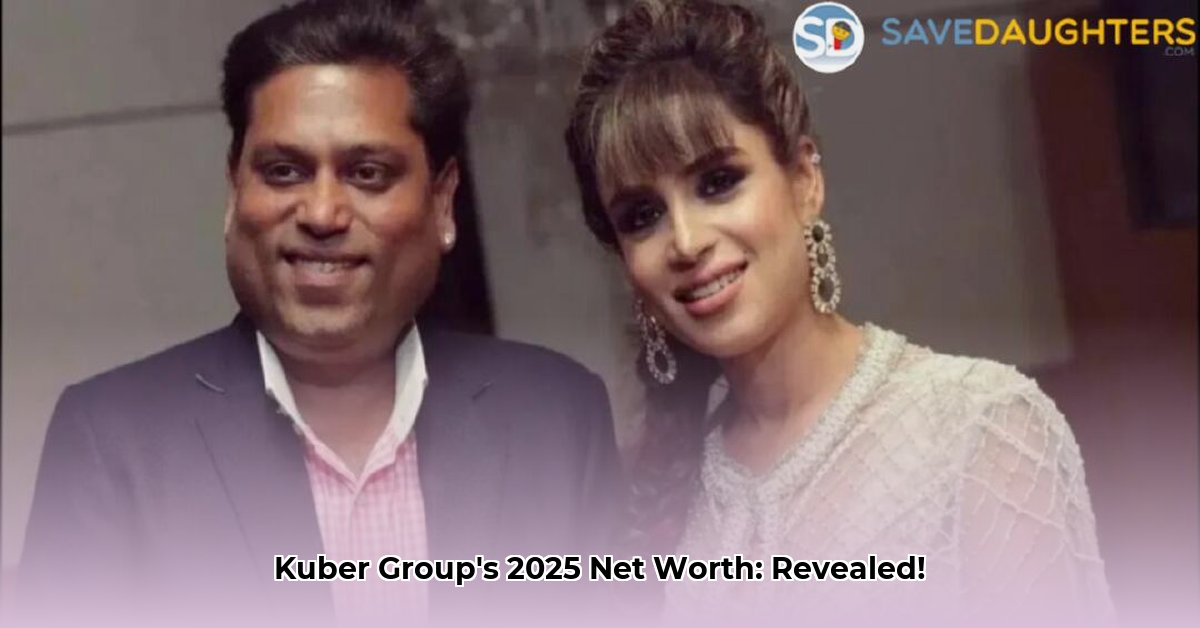
Kuber Group's Evolving Net Worth: A 2025 Perspective
The Kuber Group, a sprawling Indian conglomerate helmed by Vikas Malu, presents a fascinating case study in rapid diversification and ambitious growth. While precise figures remain elusive due to a lack of public financial disclosures, estimates place its net worth above $2 billion. This valuation, however, is a broad estimate, reflecting the considerable challenges in assessing the true value of such a diverse and geographically dispersed entity. The group's substantial holdings across diverse sectors—FMCG (fast-moving consumer goods), packaging, hospitality, aviation, and real estate—complicate any precise calculation. But the story of its ascent, and the challenges it faces, offers valuable insights into the complexities of global business in the 21st century.
Kuber Group's Multifaceted Reach: A Global Expansion
The Kuber Group's influence extends across more than 50 countries, encompassing a network of over 45 distinct companies. This extensive portfolio represents a significant achievement, showcasing a strategic expansion across a range of industries. The sheer scale of operations, from FMCG products in India to hotels in London and airline routes in Africa, highlights the group's ambition and the multifaceted nature of its enterprise. Managing this global network presents a considerable operational challenge, requiring sophisticated coordination and adaptability. How does the group successfully juggle such diverse operations and maintain its unique identity across such vast geographical distances? This is a key question for understanding its continued success. The company's strategic acquisitions and organic growth across diverse industries have been instrumental in achieving this expansion.
Strategic Growth and Calculated Expansion: A Recipe for Success?
Kuber Group's success is not solely attributed to fortune. The group has strategically combined acquisitions with organic growth, a calculated approach that reflects careful planning and astute business acumen. Each venture, from initial foray into FMCG with its Khaini brand to the subsequent diversification into other sectors, appears to be a key piece in a broader strategic puzzle. This calculated approach to expansion highlights a clear long-term vision and showcases an ability to adapt to market opportunities. Evidence of this strategy is seen in the group's current footprint across several sectors, showcasing adaptability and flexibility in the face of dynamic global markets. But can this strategy continue to yield success in an increasingly unpredictable business environment?
Vikas Malu's Vision and the Imperative of Succession Planning
Vikas Malu's leadership has been undeniably crucial to the Kuber Group's ascent. His commitment to quality and ethical practices has garnered industry recognition and respect. However, the future success of the group hinges on effective succession planning. The inherent risks associated with leadership transitions in such a large and complex organization cannot be understated. What strategies has the Kuber Group implemented to ensure a smooth transition, safeguarding its legacy and maintaining its current trajectory? Identifying and nurturing potential successors is vital for ensuring long-term stability and continuity.
Navigating Challenges and Mitigating Risks: A Proactive Approach
While the Kuber Group's achievements are remarkable, it faces significant challenges. The lack of publicly available financial data hinders precise valuation and creates uncertainty for investors. The geographically dispersed nature of its operations necessitates navigating a complex web of international regulations, increasing compliance risks. Furthermore, effective succession planning is crucial to ensure the company's long-term sustainability. These factors necessitate a rigorous and proactive risk management strategy.
Risk Assessment Matrix:
| Risk Category | Probability | Impact | Mitigation Strategy |
|---|---|---|---|
| Regulatory Issues | Medium | High | Proactive legal counsel, rigorous compliance programs, regular audits |
| Reputation Damage | Low | Medium | Open communication, strong CSR initiatives, comprehensive crisis management planning |
| Financial Instability | Low | High | Diversified revenue streams, robust financial planning, transparent reporting |
| Operational Efficiency | Medium | Medium | Streamlined processes, technology adoption, employee training and upskilling |
| Leadership Transition | Low | Medium | Formal succession planning, leadership development programs, mentorship initiatives |
This matrix illustrates a structured approach to understanding potential risks, outlining both their likelihood and potential impact. The mitigation strategies listed are crucial for proactively addressing these challenges and bolstering the group's resilience.
Future Prospects: Sustaining Growth in a Dynamic Global Landscape
The Kuber Group's future trajectory depends on its ability to address these challenges effectively. Maintaining a robust risk management framework, fostering transparency and improving financial reporting are vital for attracting further investment and reassuring stakeholders. Continued innovation across its diversified portfolio and a commitment to ethical business practices will be paramount. Succession planning is not simply a matter of identifying a replacement for Mr. Malu but ensuring the continuity of the group's values and strategic vision. Investing in future leaders through comprehensive development programs will be essential. The Kuber Group's future success lies in strategic adaptation and a commitment to long-term sustainability.